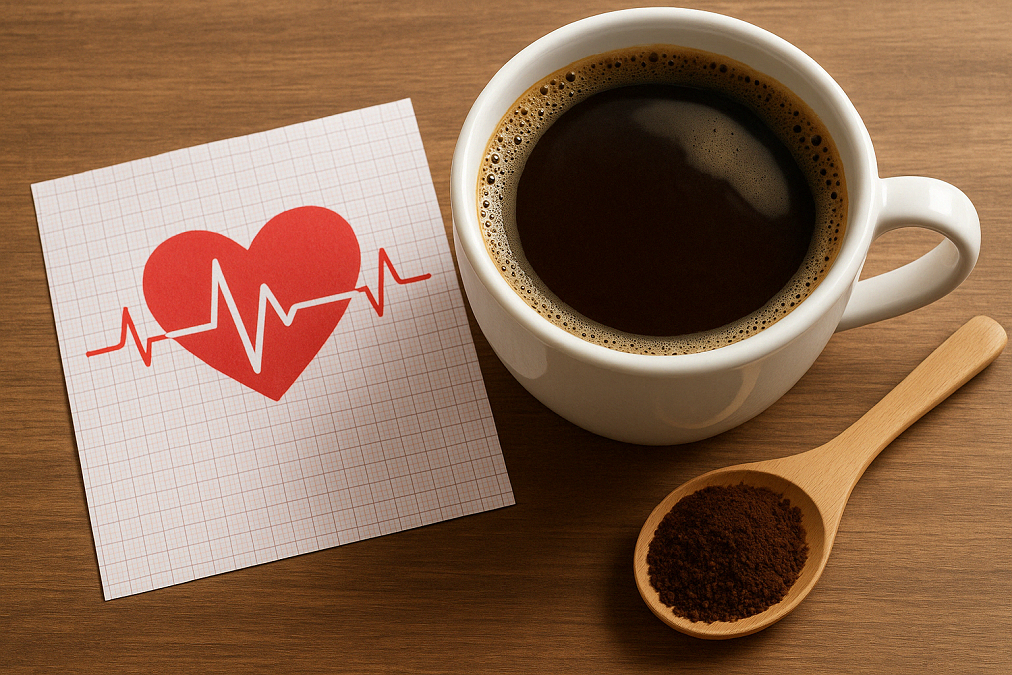 Some people find that coffee gives them acid reflux or heartburn.
Some people find that coffee gives them acid reflux or heartburn.
Others swear it has no effect at all.
To find out who is right, a new study published on the Preprints platform conducted a large review of dozens of previous studies from across the world.
And the answer will surprise you (whether you believe coffee is good or bad for acid reflux).
The researchers looked at human and animal studies on coffee and upper gastrointestinal issues.
They evaluated the findings using nine specific scientific criteria known as the Bradford Hill principles.
These include looking at whether coffee actually causes a condition or if it’s just associated with it, whether higher intake means worse symptoms, whether it works through a biological mechanism, and more.
After all this effort, the evidence remains completely muddled:
-
1. Mechanisms exist for both harmful and protective effects. For example, coffee increases acid secretion, but also contains antioxidants that can reduce inflammation and cancer risk.
2. Many studies contradict each other. For example, coffee was linked to a 49% lower risk of esophageal cancer in one study, but to a 24% increased risk of gastric cancer in another.
3. The lack of consistent findings across different studies weakens the case for causality. Some studies showed strong links (e.g., UK Biobank showed consistent risk increases for acid reflux and digestive cancers), while others (e.g., FinnGen) did not replicate these results.
4. In most studies, coffee was linked to multiple conditions (e.g., irritable bowel syndrome, acid reflux, gastric and esophageal cancers), not just one. Lack of a unique link to one specific disease also weakens the case that coffee causes acid reflux.
5. The strongest associations between coffee and acid reflux were found in women, overweight individuals, fasting reflux patients, and those genetically predisposed to heartburn.
6. In acid reflux patients, coffee increased symptoms only when consumed during fasting. After meals, it didn’t have the same effect.
7. Coffee seems to affect people differently. Some people are more sensitive to caffeine due to body weight, gender, or genetics.
8. Certain brewing methods and whether the coffee is caffeinated or not also seem to matter.
The reality is that research currently cannot say for sure. There’s quite a lot of evidence that coffee drinkers are more likely to have acid reflux, but it’s definitely not a strong enough association to be considered causal. It might work through other conditions.
And try to drink your coffee after meals instead of on an empty stomach (like early morning).
But why not eliminate your acid reflux completely?

 Overcoming IBD
Overcoming IBD Multiple Sclerosis
Multiple Sclerosis Banishing Bronchitis
Banishing Bronchitis Gum Disease Gone
Gum Disease Gone Overcoming Onychomycosis
Overcoming Onychomycosis Neuropathy No More
Neuropathy No More The Prostate Protocol
The Prostate Protocol Brain Booster
Brain Booster
 Ironbound
Ironbound
 Solution for Shingles
Solution for Shingles
 The Bone Density Solution
The Bone Density Solution
 The Ultimate Healing Protocol
The Ultimate Healing Protocol
 The Parkinson's Protocol
The Parkinson's Protocol
 The Chronic Kidney Disease Solution
The Chronic Kidney Disease Solution
 Overthrowing Anxiety
Overthrowing Anxiety The Fatty Liver Solution
The Fatty Liver Solution The Hypothyroidism Solution
The Hypothyroidism Solution
 The End of Gout
The End of Gout The Blood Pressure Program
The Blood Pressure Program
 The Oxigized Cholesterol Strategy
The Oxigized Cholesterol Strategy
 Stop Snoring And Sleep Apnea Program
Stop Snoring And Sleep Apnea Program
 The Arthritis Strategy
The Arthritis Strategy The Vertigo & Dizziness Program
The Vertigo & Dizziness Program The 3-Step Diabetes Strategy
The 3-Step Diabetes Strategy Hemorrhoids Healing Protocol
Hemorrhoids Healing Protocol The Erectile Dysfunction Master
The Erectile Dysfunction Master Weight Loss Breeze
Weight Loss Breeze The IBS Program
The IBS Program The Insomnia Program
The Insomnia Program The Migraine and Headache Program
The Migraine and Headache Program The Neck Pain Solution
The Neck Pain Solution The Menopause Solution
The Menopause Solution The Ejaculation Master
The Ejaculation Master The TMJ Solution
The TMJ Solution The Acid Reflux Solution
The Acid Reflux Solution The Fibromyalgia Solution
The Fibromyalgia Solution The Psoriasis Strategy
The Psoriasis Strategy